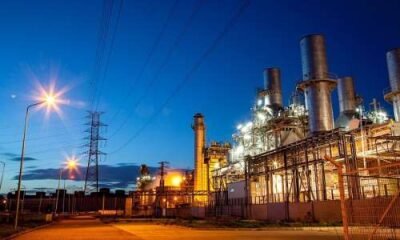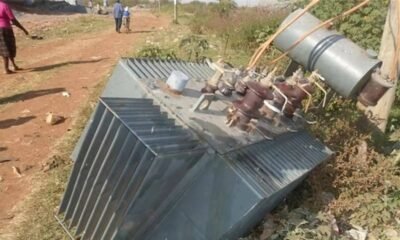Business
Renewable Energy: Nigeria Commissions Hospital-Based Solar Power Plant

Nigeria has taken an encouraging step towards providing renewable energy solutions through the commissioning of a Hospital-Based Solar power Plant.
It is the first phase of a 400-kilowatt (kW) solar photovoltaic (PV) power plant aimed at improving energy needs at the Yobe State University Teaching Hospital, Damaturu.
The project which would help decentraise energy access and promote renewable alternatives is a key aspect of the current administration’s Renewed Hope Agenda.
“This solar power plant reaffirms our commitment to delivering sustainable and inclusive energy solutions for socioeconomic growth.
“It ensures the hospital operates with reliable and clean energy for critical medical functions such as surgeries, vaccine preservation, and life-saving diagnostics.”, says the Minister of Power, Chief Adebayo Adelabu, who was represented by the Ministry’s Permanent Secretary, Alhaji Mamuda Mamman,
READ ALSO: How Banks Are Now Targeting Renewable Energy Transition – Sahara Group
READ ALSO: Renewable Energy: ECOWAS Bank, European Investment Bank Partner To Mobilise €300 million
There is also optimism that solar power plant would come handy in view of the rampant power outages in the country and ensure effective and seamless operations wherever eventually installed.
The Hospital-Based Solar Plant is expected to achieve the following:
- reduce power outages,
- cut operational costs
- promote environmental sustainability
- serves as a model for future renewable energy deployments
- Generally improve healthcare delivery
The 400kW hospital-based solar plant is expected to expand to 1 megawatt (MW) in the near future
It is in line with the Federal Government’s broad objective of reducing fossil fuels’ use, boost energy access in underserved communities, and improve national energy security.
“Today, we commission the 400kW Phase I of this project.
“We remain committed to scaling this to 1MW and replicating similar interventions across the country.
“Our goal is to power hospitals, schools and critical infrastructure with clean, reliable energy,” Adelabu added .
According to him while the project aligns with the Electricity Act 2023, which prioritises off-grid and decentralised energy solutions, it also stands to help Nigeria meet its climate action goals and international commitments to reduce carbon emissions.

























